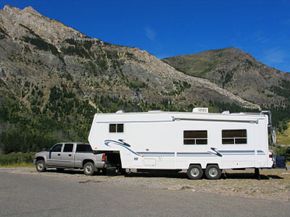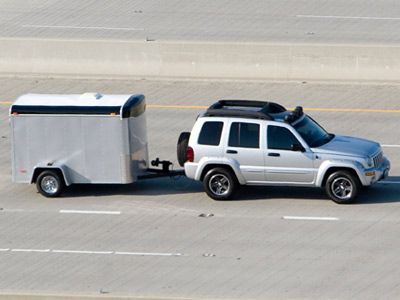We're not going to kid you -- calculating some of the critical weights associated with towing can be a bit of a complex undertaking. Figuring out specific weights or ratings, like the gross vehicle weight (GVW) of your tow vehicle or the gross combination weight rating (GCWR) for both your tow vehicle and trailer can sometimes lead to many more questions. Does that weight include a full tank of fuel? What about the passengers and all of your camping gear? If you disconnect the trailer, can you add more cargo weight to the tow vehicle safely? How much more? How much is too much? If you're a novice to the world of towing, you'll really do have to study the various towing terms before you even attempt to work out some of the towing capacity limits for your setup.
Fortunately, not every weight associated with towing is that difficult to calculate. In fact, some are exceedingly simple. Gross trailer weight (GTW) is a good example. Gross trailer weight is the weight of a fully loaded trailer. It's not a weight rating determined by the manufacturer or a weight combined with any other weight -- it's the actual weight of the trailer after you've loaded all of your snowmobiles, firewood, camping gear, people or any other cargo onto (or into) it. Any weight that you add to the trailer adds to the gross trailer weight. It's as simple as that.
Advertisement
Now that you know what gross trailer weight is, you're probably wondering how you can learn the actual weight of your own trailer. After all, gross trailer weight is something that every driver of a towed vehicle should know. Read the next page to find out.
Advertisement




